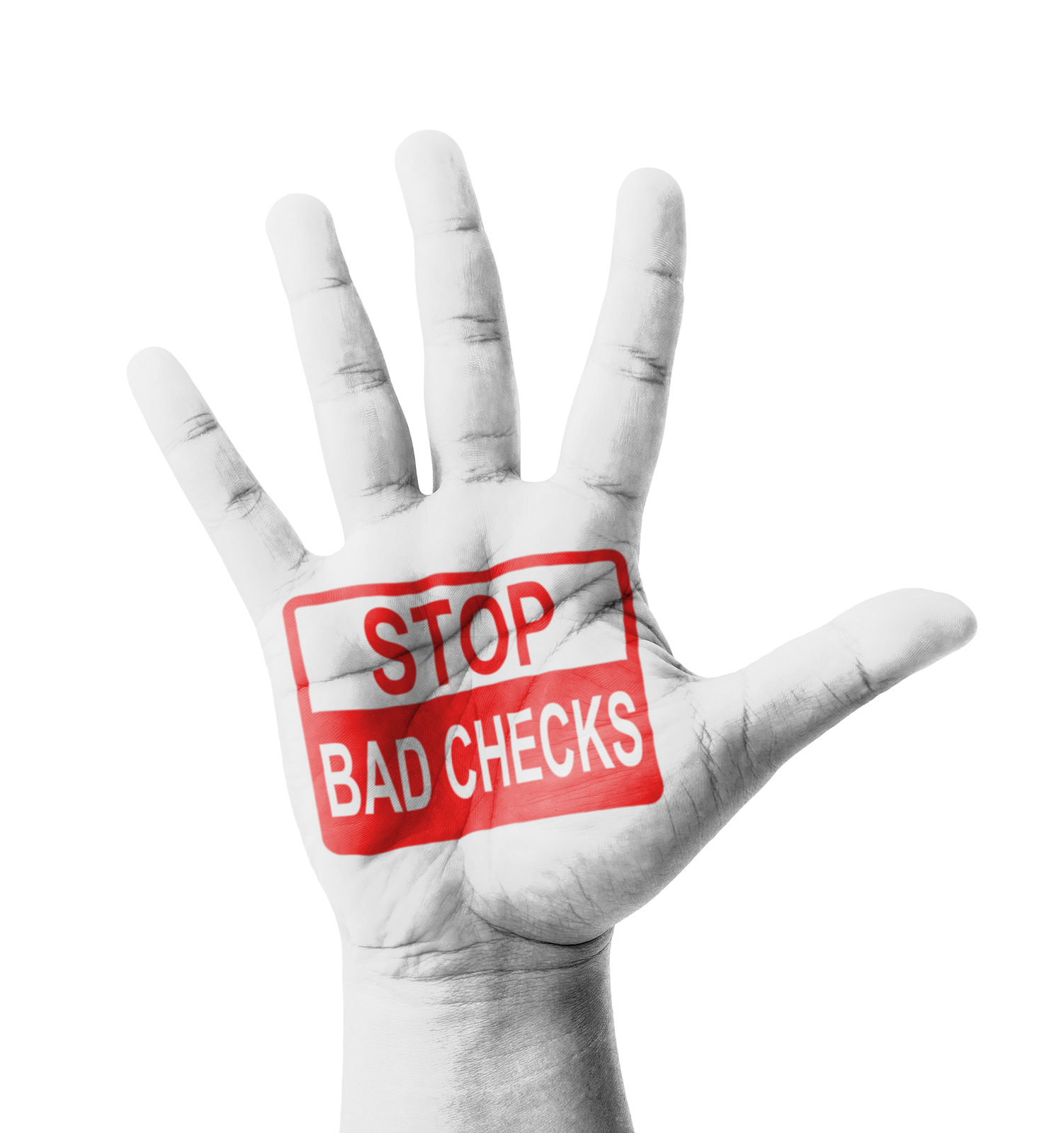You are signed in as: | My Account |
 |
US SITE
Go to Canadian site |
Bank quality checks without draining your bank account.
About Bounced Checks: What You Need to Know
What exactly is a bounced check?

If the person writing the check doesn’t have the money in his or her account to cover the amount, the check will “bounce.” A “bounced check” is a slang term referring to a check that cannot be processed because the account holder has nonsufficient funds (NSF). Banks return, or bounce, these checks (also known as rubber checks) rather than accepting them, and banks typically charge the check writer NSF fees. Overdraft or NSF fees average around $30 but can greatly vary between one bank to the next. Chase Bank, for example, has an average bounced check fee of $34. Some credit unions will provide lower NSF fees, often around $8, to incentivize membership.
Writing bad checks can be illegal, and the crime can range from a misdemeanor to a felony, depending on the amount and whether the activity in question involved crossing state lines. For the average person, if you bounce a check, you should take the following steps to avoid further issues:
- Deposit money into the account as soon as possible. While you may not be able to beat the bounce, you can still display a show of good faith to the bank and hopefully prevent the issue from recurring.
- Contact the payee. Some merchants charge an additional fee for a bounced check, and you’ll still be on the hook for the original amount, too. Get in touch as quickly as possible, which shows that you are proactive and intend to pay for the goods or services received. At the end of the day, most businesses are more interested in getting their money than punishing you with any further action.
- Expect to pay some fees, but communicate with your bank or credit union as soon as possible. If you’ve never overdrafted your account before but tend to keep your account in good standing with the bank, you may be able to convince the bank to waive the fee.
- Have overdraft protection on your account but your bank will probably charge extra fees for this additional service.
There’s an element of trust involved in accepting checks are payment. The payee has no immediate way of knowing if the payor has the money to cover the transaction, and no cash changes hands immediately. It can take a few days for the transaction to be complete. The payee accepts the check on faith. Account holders have a responsibility to do what they can to prevent bounced checks using the following tips:
- Enroll in overdraft protection if your bank offers it, which can protect you from the merchant side of overdrafting and potentially minimize involved fees. Keep a buffer amount in your account that you do not use.
- Balance your checkbook regularly.
- Monitor your accounts online and set up text-alerts, if your bank or credit union offers them, which can alert you when your balance dips below a set amount.
All product names, brands and trademarks are property of their respective owners.